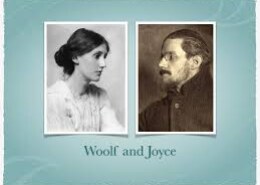Marxist literary criticism interprets the relationship between literature and society through the lens of class struggle, economic disparity, and the socio-economic forces that shape both. In George Orwell's "1984," these themes are evident in the rigid class structure and the pervasive control exerRead more
Marxist literary criticism interprets the relationship between literature and society through the lens of class struggle, economic disparity, and the socio-economic forces that shape both. In George Orwell’s “1984,” these themes are evident in the rigid class structure and the pervasive control exerted by the Party. The society depicted is divided between the ruling Party and the oppressed proles. The Party, especially the Inner Party, represents the bourgeoisie, controlling resources, information, and power, while the proles are kept in ignorance and poverty, rendering them powerless. Economic disparity is a central theme, with the proles living in deprivation and the Inner Party enjoying luxuries, highlighting the unequal distribution of wealth and resources. This disparity underscores the Marxist critique of capitalism, where the ruling class thrives at the expense of the working masses. The Party’s manipulation of language and truth through doublethink and Newspeak, along with the use of surveillance and ideological control, reflects Marxist ideas about how ruling classes maintain dominance. Winston’s failed rebellion and the Party’s control over supposed revolutionary groups illustrate the difficulties of overthrowing entrenched power structures. Through a Marxist lens, “1984” critiques totalitarianism and explores power, control, and resistance within a stratified society.
See less

Chinua Achebe’s Things Fall Apart and Ngugi wa Thiong’o’s Petals of Blood are pivotal works in African literature, exploring the complexities of cultural identity amidst colonial and post-colonial challenges. Things Fall Apart delves into pre-colonial Igbo society and the impacts of European colonizRead more
Chinua Achebe’s Things Fall Apart and Ngugi wa Thiong’o’s Petals of Blood are pivotal works in African literature, exploring the complexities of cultural identity amidst colonial and post-colonial challenges.
Things Fall Apart delves into pre-colonial Igbo society and the impacts of European colonization. The protagonist, Okonkwo, embodies the struggle between tradition and change. As European influences disrupt Igbo culture, Okonkwo’s resistance highlights the broader impact of colonialism on African societies.
Petals of Blood portrays cultural identity as evolving, shaped by colonialism and post-colonial disillusionment. Through characters like Munira, Karega, Wanja, and Abdulla, Ngugi explores the clash between traditional African values and modernization. The transformation of Ilmorog from a rural village to a commercial town symbolizes the erosion of indigenous cultures. Ngugi underscores the importance of cultural heritage and collective identity as sources of resistance against neocolonial forces, advocating for a return to communal values and indigenous knowledge.
Both novels illustrate the enduring significance of cultural identity in the face of external pressures, emphasizing the resilience and complexity of African societies.
See less